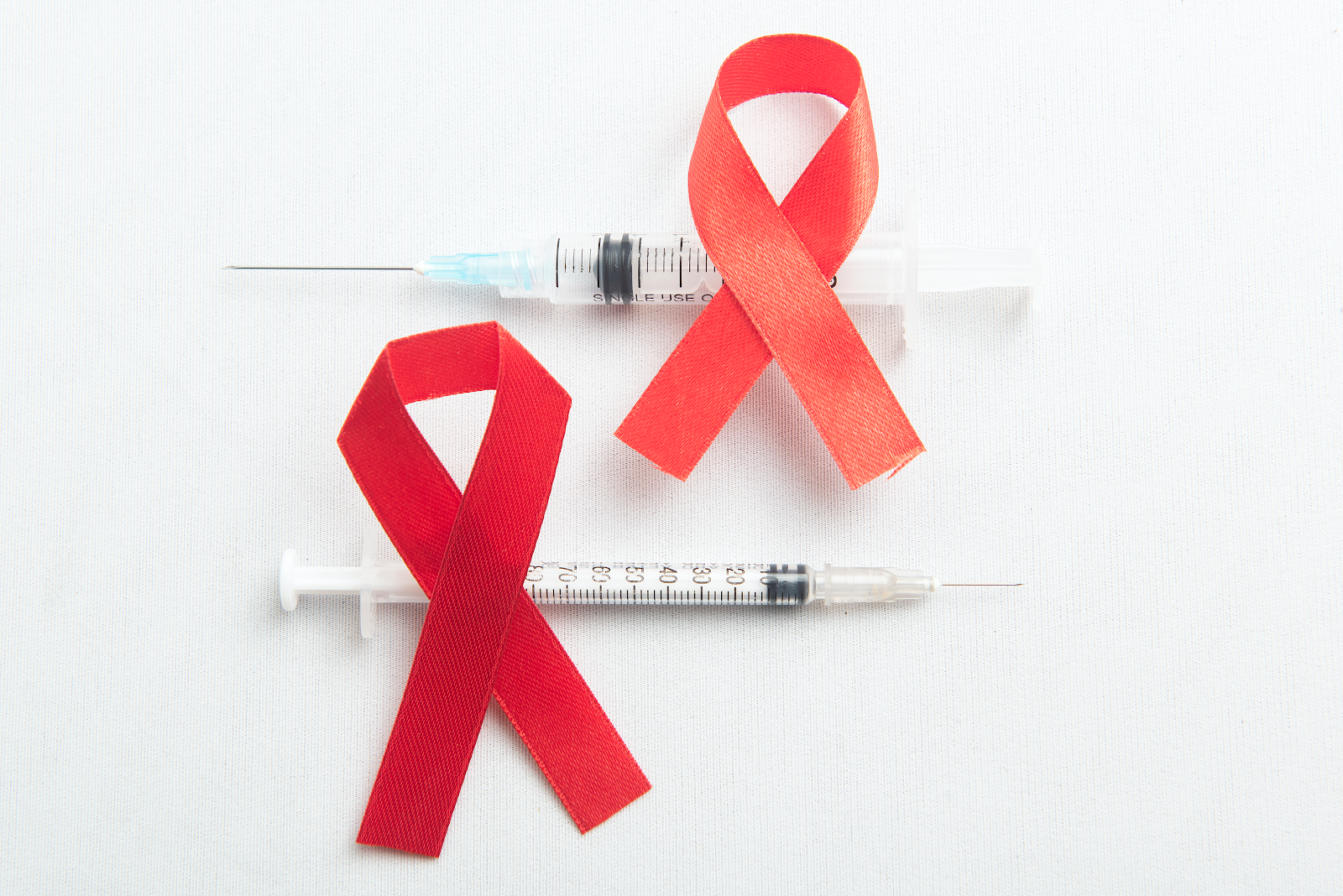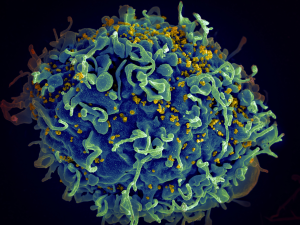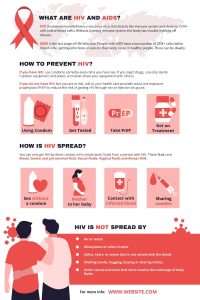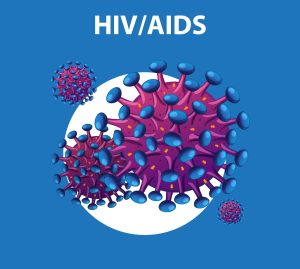Disclaimer:
This article is for information purposes only. It is not a substitute for medical advice or treatment. Seek medical care for your treatment.
What are HIV and AIDS?
HIV:
HIV is a sexually transmitted infection (STI). It can also advance by touch with the infected blood through illicit injection drug use or sharing needles. It can also be transmitted from mother to the child during pregnancy, childbirth or breastfeeding. It could take years without proper medical treatment for HIV to damage your immune system to the point where you develop AIDS.
There is no treatment for HIV/AIDS but medications can manage the infection and hinder the spread of the disease. Worldwide AIDS deaths have fallen because of the Antiviral treatments for HIV and international organisations are trying to expand access to treatment and prevention programmes in nations with limited resources.
AIDS:
Acquired immunodeficiency syndrome (AIDS) is an acute, potentially fatal condition caused by the human immunodeficiency virus (HIV). HIV intervenes with your body’s potential to confront infection and disease.
Symptoms:
The symptoms of HIV and AIDS differ and rely on the phase of infection.
Primary infection:
Some people infected by HIV grow an illness similar to flu within 2-4 weeks after the virus attacks the body. This illness may long for several weeks. Some of the symptoms are:
- Fever and headache
- Muscle and joint pain
- Rash
- Sore throat and mouth sores
- Inflamed lymph glands
- Diarrhea
- Weight loss
- Cough and night sweats
These symptoms can be mild and might go unnoticed but at this time the virus in your blood is very high. Consequently the infection grows more swiftly during primary infection than during the next stage.
Chronic latent infection:
In this stage HIV is still in the body and in white blood cells. In many people symptoms or infections might not be apparent during this time. This stage can prolong for several years if you are receiving antiretroviral therapy. Certain people grow more chronic disease much sooner.
Symptomatic HIV infection:
As the virus grows and harms your immune cells, the cells in your body that help combat germs – you may grow mild infections or chronic symptoms like:
- Fever
- Worn-out
- Swollen lymph nodes
- Diarrhea
- Weight loss
- Oral yeast infection
- Shingles
- Pneumonia
AIDS symptoms:
Even in nations with scarce resources, the number of AIDS-related deaths has substantially decreased due to enhanced access to antiviral treatments. Today, most HIV-positive individuals in the United States do not progress to AIDS because of these life-saving treatments. If left ignored, HIV usually advances to AIDS within 8 to 10 years.
Your immune system has been seriously undermined when AIDS strikes. Diseases that would not normally cause illness in someone with a healthy immune system will be more likely to hit you. These are referred to as opportunistic malignancies or infections. Symptoms of certain infections are:
- Sweats and chills
- Persistent fever
- Severe diarrhea
- Swollen lymph glands
- Persistent purplish spots on skin
- Yeast infections in mouth, throat and vagina
- Fatigue and weakness
- Weight loss
- Skin rashes
Diagnosis for HIV:
Through Blood or saliva testing you can diagnose HIV. Tests are:
- Antigen/antibody tests:
Generally, a vein is used to gather blood for these tests. Antigens are parts of the HIV virus that are usually appear in the blood a few weeks after HIV exposure and show a positive test result.
After being infected with HIV, your immune system generates antibodies. The time it takes to detect antibodies can range from weeks to months. It may take two to six weeks following exposure for the combination antigen/antibody tests to show positive results.
- Antibody tests:
These tests look for HIV antibodies in the saliva or blood. The majority of quick HIV tests, including at-home self-tests is antibody tests. It may take three to twelve weeks following exposure for an antibody test result to be positive.
- Nucleic acid tests:
These tests search for the virus in your blood. They also include blood taken from the vein. You doctor might suggest NAT if you have been exposed to HIV within few weeks. NAT will be the first test to come out positive after having HIV. Consult your doctor about the correct HIV test for you.
Tests:
It is necessary to have a trained specialist in diagnosing and treating HIV to help you:
- Discover whether you need further testing
- Find out which HIV antiretroviral therapy is ideal for you
- To manage your health check your progress and work
Several tests can guide your health care provider identify the stage of your disease and the right kind of treatment if you receive a diagnosis of HIV/AIDS, including:
- CD4 T cell count: CD4 T cells are white blood cells that especially attacked and demolished by HIV. Even with no symptoms, HIV infection grows to AIDS when your CD4 T cell is below 200.
- Viral load: This test checks the amount of virus in your blood. After getting HIV treatment, the aim is to have an unnoticeable viral load. This drastically lowers your chances of opportunistic infection and other HIV linked complications.
- Medication resistance: some strains of HIV are drug-resistant. This test informs treatment decisions and assists your healthcare provider in determining whether the virus in question is resistant in your particular case.
Tests for any complications:
Your doctor might ask for lab tests to examine for other infections or complications, such as:
- Tuberculosis
- Hepatitis B or hepatitis C virus infection
- STIs
- Liver or kidney damage
- Urinary tract infection
- Cervical and anal cancer
- Cytomegalovirus
- Toxoplasmosis
Conclusion:
There are various successful ways to avert or lower the risk of HIV infection. Consult you sexual health clinic or a GP for advice about the ideal way to lower your risk. With the help or various tests you can get to know about the stage and severity of HIV infection and it can make it easier for your doctor to treat you accordingly.




